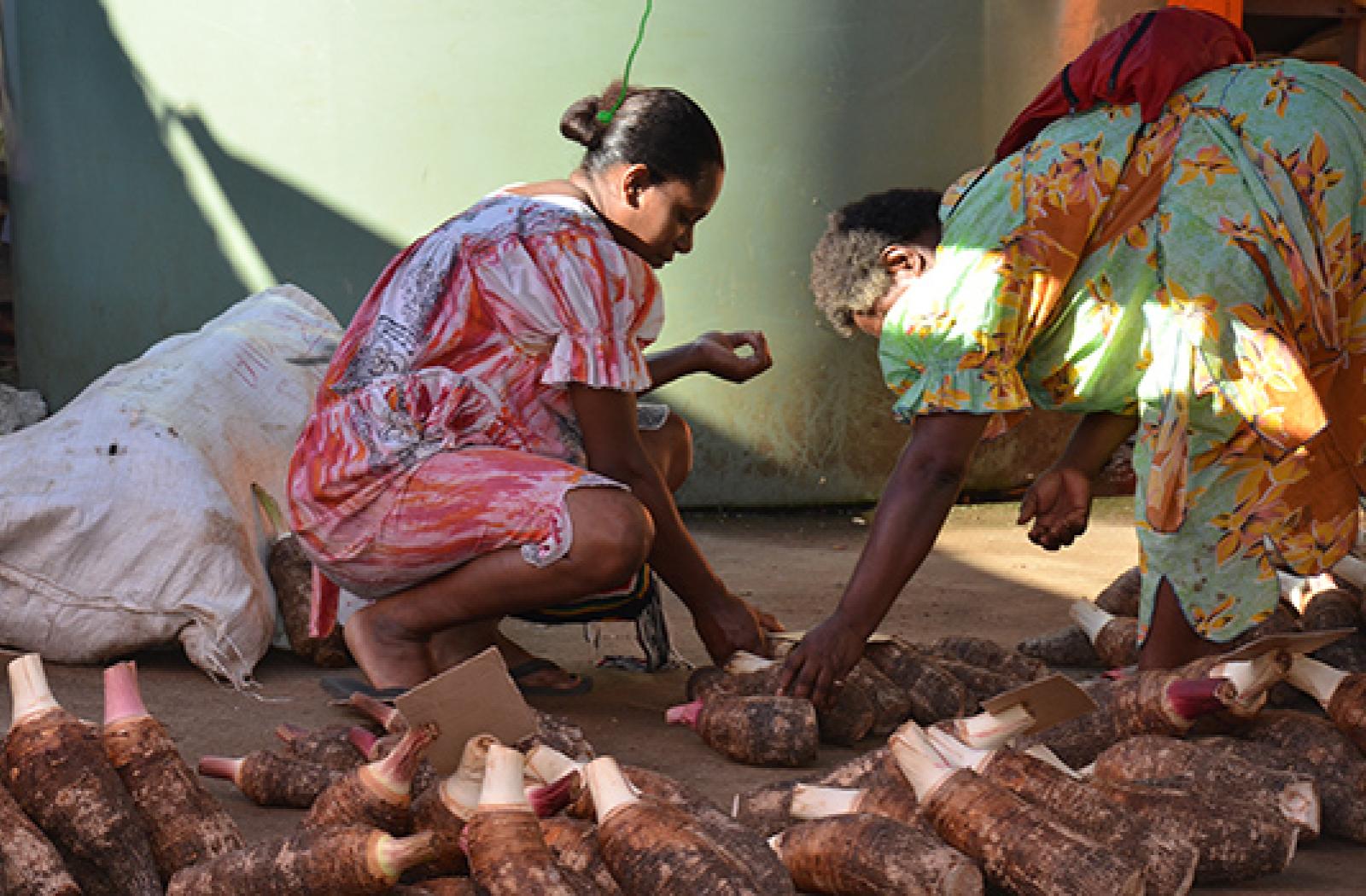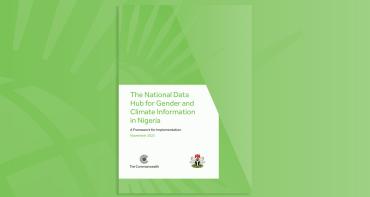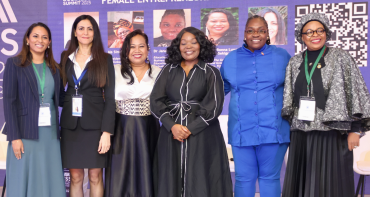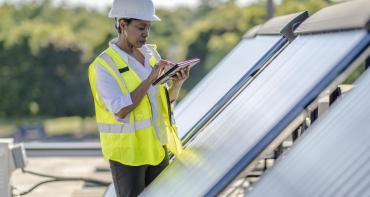Climate change impacts are affecting, in very similar ways, countries as far away from each other as Lesotho in Southern Africa, the Marshall Island in the Pacific, Jamaica in the Caribbean and India in Asia. All of these countries and the millions of girls, boys, women and men living in them are experiencing severe droughts and water challenges.

Mariama Williams, Senior Programme Officer, Global Governance for Development Programme, South Centre
Climate change impacts are affecting, in very similar ways, countries as far away from each other as Lesotho in Southern Africa, the Marshall Islands in the Pacific, Jamaica in the Caribbean and India in Asia. All of these countries and the millions of girls, boys, women and men living in them are experiencing severe droughts and water challenges.
In Lesotho, due to drought conditions, food production is severely impaired, threatening food security for many. Thousands of girls, boys, women and men have been forced to face malnutrition and their well-being is further compromised by rising malaria. Similar challenges are being experienced in South Africa, Zimbabwe and Malawi. The situation is leading to rising disease outbreaks and gender and sexual violence.
The Marshall Island had to declare a state of emergency with its drought conditions. Since 2009 the Caribbean has experienced drought-like conditions, affecting both agricultural production and the availability of water. In India, thousands of farming communities face daily challenges with securing food and water for drinking and agricultural usage. All around the Commonwealth, countries are facing similar day to day survival issues.
Due to gender specific roles and the differences in gender access to resources, women, more than men, will face the increased burden of collecting water, and suffer an increased vulnerability to health challenges and exposure to gender-based violence. Furthermore, to the extent that government resources are directed to respond to addressing the losses and damages caused by climate change induced events, there will be a diversion of resources away from social and other sectors, including from targeted and non-targeted gender equality objectives.
Thus climate change can pose challenges to women’s economic and social advancement. At the same time, enhancing women’s access to economic and social resources can promote better adaptation and mitigation outcomes, and contribute to the successful achievement of national and global climate change programmes. Timely and adequate climate adaptation and mitigation response strategies can save women’s and men’s lives and secure their livelihoods. But this requires extra-budgetary expenditure and increasing reliance on climate finance from the international community.
Climate finance is important for tackling areas such as the provision of clean energy for cooking, lighting, agro processing and public transportation. This finance is available to Commonwealth developing countries through a variety of financial mechanisms set up under the auspices of the United Nations Framework Convention on Climate Change (UNFCCC), including the Global Environment Fund, the Adaptation Fund and the recently operationalised Green Climate Fund (GCF). They are also available through bilateral and multilateral frameworks outside the convention such as the World Bank’s Climate Investment Funds (CIF), and regional development banks in Asia, Africa and the Caribbean.
These funds represent important opportunities to promote gender responsive, clean energy adaptation, low carbon technology and climate resilient development; as well as a transition to green jobs, decent work and social protection, and the growth and sustainability of businesses.
In order for the funds to work positively for women’s empowerment and gender equality outcomes, gender-based barriers to women’s access to climate finance must be reduced and eliminated. The right conditions are being set in place, as demonstrated by the UNFCCC’s gender decisions, the Lima Work Programme on Gender, gender sensitization of the Global Environmental Facility (GEF), the Adaptation Fund and the GCF funds. We are also now seeing requirements for accrediting and implementing entities to develop and implement clear criteria for promoting access and distribution, monitoring and accounting for these resources in a gender equitable ways. Currently, most funds operating with public finance and under UNFCCC and the multilateral development bank have, or, are in the process of developing and approving gender policies and gender action plans.
However, for these efforts to be effectively implemented, we need proactivity from women’s organizations and gender advocates, including so called gender machineries - government bodies that are set up to achieve gender equality. Gender machineries need to improve their understanding of gender and climate change and how it can be addressed with their expertise in traditional gender and women’s empowerment issues, and work programmes, such as gender responsive budgeting, combatting gender-based violence and building the capacity of female farmers and women-owned businesses.
These government entities can play an extremely important role in interfacing with other ministries, such as those that govern the environment, energy, agriculture, commerce, trade and finance. National designated authorities that work with climate funds also have a part to play in addressing climate change impacts at national and regional levels in a gender sensitive and gender responsive manner.
So it is reassuring that the Commonwealth has decided to focus on climate change and women at their Women’s Affairs Ministers Meeting (WAMM). Because, in order to address this issue, gender machineries will also need to work consistently with entities such as the Commonwealth Secretariat to build their capacity to understand and shape gender and climate change issues and to promote and ensure the prioritizing of women’s access to climate finance in the GCF, GEFs administered UNFCCC funds, the Adaptation Fund, as well as the CIFs. This points to the clear need for the Commonwealth Secretariat to develop and implement a strong, well-funded, multi-year programmatic framework for gender and climate change, which also focuses on creating gender considerations in international, regional and national climate finance mechanisms. This could be a game changing outcome of the 11th WAMM in Samoa.



